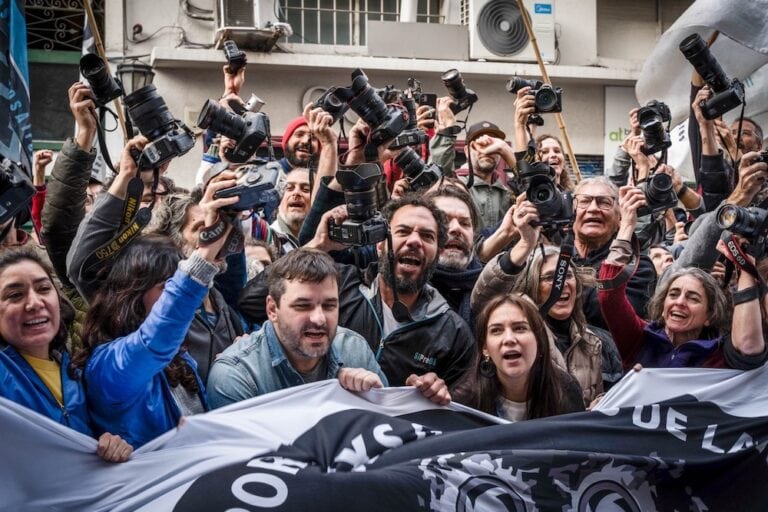(RSF/IFEX) – Reporters Without Borders has voiced concern about the deterioration in relations between the government and the press since Néstor Kirchner took over as president in May 2003 and the arbitrary measures that have been taken with increasing frequency against critical news media and journalists. These have included withdrawal of programmes, firings and the […]
(RSF/IFEX) – Reporters Without Borders has voiced concern about the deterioration in relations between the government and the press since Néstor Kirchner took over as president in May 2003 and the arbitrary measures that have been taken with increasing frequency against critical news media and journalists. These have included withdrawal of programmes, firings and the discriminatory allocation of state advertising.
“Political pressure from the president’s supporters and associates continue to limit the freedom of expression of some journalists in both the state and privately-owned media,” the organisation said. “We call on the Argentine government to stop this behaviour and we voice our support for the journalists who are currently protesting against the government’s attempts to silence its critics.”
In one of the most recent cases, Marcela Pacheco, the presenter of the midnight news programme on the state-owned Canal 7 television station, was fired on 6 June 2006 for criticising a rally organised by President Kirchner on 25 May to mark the third anniversary of his installation.
The Perfil publishing house and daily newspaper filed a court action on 31 May accusing the government of discriminating against the daily “Perfil” and the magazines “Noticias” and “Fortuna” by not allocating them any advertising. Leading media figures gathered the same day in support of this initiative, accusing the federal government of assigning advertising in a biased manner and thereby restricting access to official information.
The current affairs programme “Séptimo Día” on local radio station Lu12 Radio Río Gallegos in the southern province of Santa Cruz was terminated on 3 May as a result of pressure from the deputy governor, Carlos Sancho. The programme’s presenter, Héctor Barabino, said this followed a phone call to Lu12 owner María Eugenia Sanhueza from an official close to Sancho, saying all state advertising would be withdrawn if the programme continued. The station earns 28,000 pesos (approx. 7,000 euros) a month from state advertising.
The station’s management ended the programme after Barabino refused to moderate its critical analysis of local and national news.
The suspension of two other radio and television programmes following pressure from local and national politicians was already criticised by RSF in releases on 5 January and 21 April (ver las alertas del 21 de abril y 5 de enero de 2006).
The organisation has also voiced surprise on several occasions at the way the access of journalists to government information and senior officials, including the president, has been obstructed.


